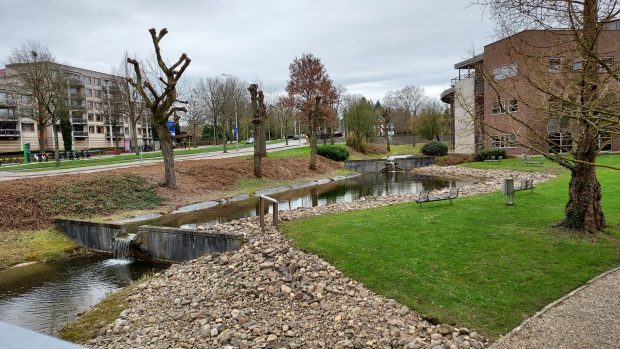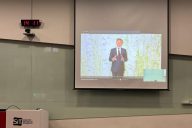With Erasmus+ programme, the EU supports staff mobility for teaching and training activities between institutions of higher education (HEI). The mobility experience with EU’s Erasmus+ programme benefits participants in different ways. This blog post explains, how a communications professional can benefit from this opportunity.
Identify your reasons for the exchange
The similarities we share with strangers in another country stay hidden, until we choose to look closer. Exchange of thoughts, ideas and knowledge is fundamental when we thrive to grow our understanding of the world, and ourselves as human beings. Once getting familiar with others, the similarities are revealed.
Before applying for exchange, I scrolled through organizations we have mutual exchange agreements with. Then, I checked our organization’s notifications about the upcoming staff weeks in different European institutions of higher education (HEI). None of them felt quite right for my specific interests. So I did quite a bit of research to find the places I would ask to visit.
Many organizations produce international staff weeks, and during and after Covid-19 pandemic, the online versions of exchange programmes are available. For the convenience of the mutual thought-exchange, I wanted to make sure the conversations would be taking place in English. Now that UK is no longer part of the EU family, there was just Ireland to bother. And none of their institutions answered back.
The superficial differences between a Dutch and a Finn
I knew from previous experiences that my best bet after fully native English-speaking countries would be the Netherlands. Both Finland and the Netherlands share similar educational structure so that a university of applied sciences is not a total oddball when introducing my proposal for a visit.
There’s the difference in funding models of HEI’s in Finland and the Netherlands. In Finland all degrees of education are free for students. The HEI’s are subsidized by Finnish government only after the student graduates. In most countries around the world, the student pays the tuition fee themselves. So the HEI’s abroad get the gold coins right when the student chooses the particular HEI for their study place.
Depending on the industry, workplace culture and the individual personality traits, we have different working life practices and dynamics. The Dutch I have previously met, were very efficient and not afraid to speak their mind. I like that mindset.
On this exchange period, the efficient Dutch working style was present, yet sofisticated. My host had designed a two-day visit, tailor made, just for me. I got to meet eight communications professionals, playing different roles at the hosting institution. The discussions were deep-diving and enlightening. Similar challenges and solutions were identified.
Communications is everywhere but communications professional is a rare sight
This may be a less obvious and not the most popular opinion, but. Erasmus+ staff exchange between institutions of Higher Eduction in the geographical frame of Europe is not that much of an internationalization experience for learning to understand different cultures, as it is an opportunity for collaboratively compare with colleagues the ways of working and recognize development issues.
At HEIs, the role of communications is significant, but the number of communications professionals is small. I wanted to find an organization similar to ours, and get to the bottom of it: are they doing something better than we are.
As I finally met the highly experienced communication professionals, and they were shocked to learn, how small our organization’s communications team actually is. They had a bit more personnel, and they too, sometimes, felt overwhelmed by the workload.
So, are they doing better than us? Some of the things are obvious: more staff equals more resource for communications. But, it never is enough to serve every communications need, if “everything should be communicated”. Strategic choices and building a community inclusively with the members of organization, students, staff and shareholders alike, would seem the key to success. This is what my host institution in the Netherlands is actively promoting. I trust it will help them with the competition of diminishing number of students, as the new generations of students in Europe get smaller in numbers.
Exchange supports internationalization but can be so much more
The contributions of receiving organization are crucial for the sending institution’s staff. Before my communications specialist career, I’ve been working as international mobility coordinator. I’ve help students and staff to internationalize, and received many exchange students and teachers to visit our organization. Many of them are still, after 15 years, keeping contact with me.
I’ve been part of the team that has organized international staff week at Metropolia UAS. Having dozens of visitors at the same time is great, it brings the bubbly conversations to life, but the programme usually can’t cater for everyone to satisfy their specific desires for learning.
A truly successful exchange follows the principle of reciprocity. My visit was very efficient, in Dutch style. I was surprised that staff of my hosting institution were not too familiar with the possibilities of Erasmus+ exchange. Many said they had never visited Finland. I’ve promised to host a visit, if they choose to rent a bus and have a little road trip up North. That is the least I could do.
These were my experiences after a short but effective staff mobility experience a month back in the Southern Netherlands. Go and search for your own exchange experience!
As an after thought: I’m curious to know if there is any HEI organizing international staff week only for the communications professionals? That would be absolutely brilliant. Let me know if you’d like to co-organize such an event with me – at our place or yours.
Author
Milla Åman Kyyrö (Master of media management, Master of cultural management). Milla works as a communications specialist at Metropolia University of Applied Sciences (UAS), located Finland, Helsinki capital region in the research, development and innovations services. She’s seasoned project communications manager and enthusiastic about international relations.









Ei kommentteja